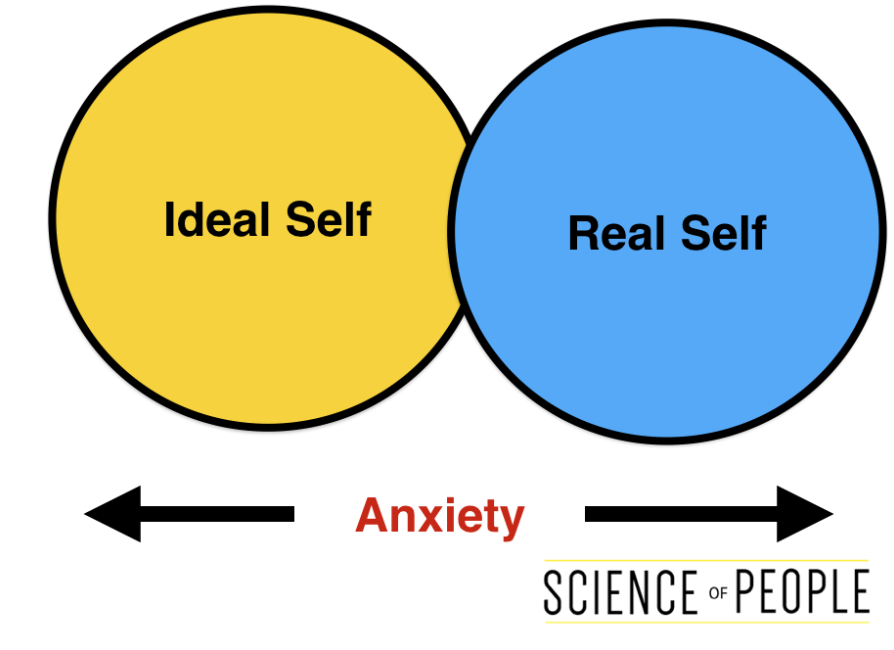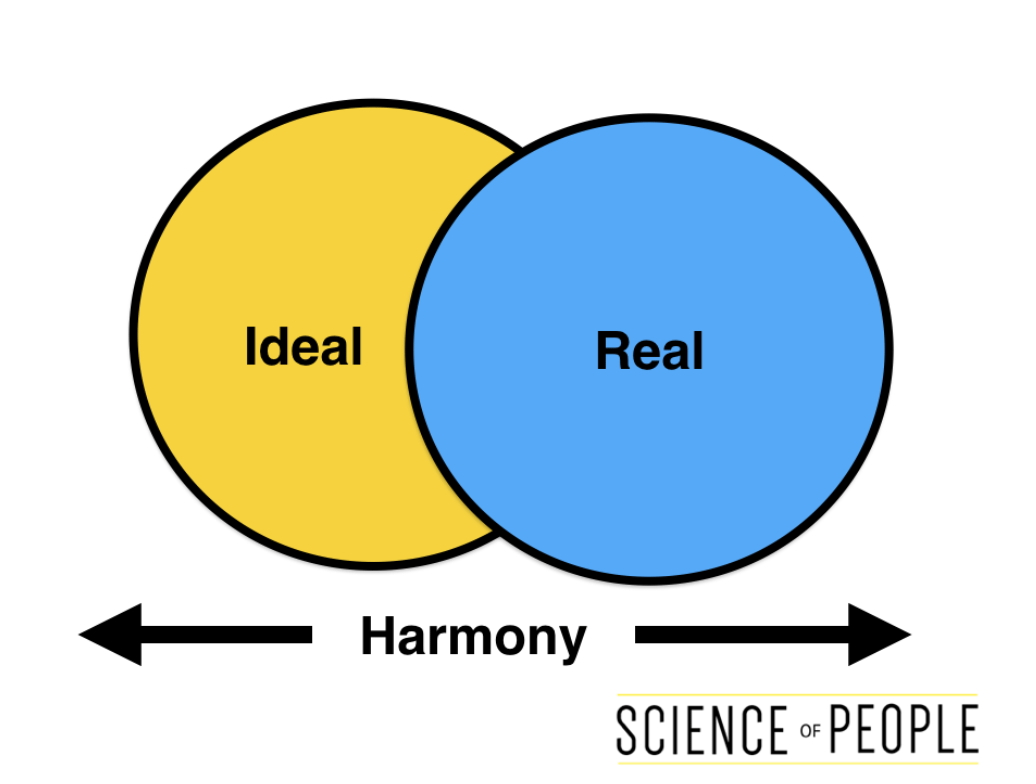In this episode of our series “The World’s Most Interesting People,” I sat down with Lewis Howes. Lewis is the author of The School of Greatness1 https://www.amazon.com/gp/product/1623365961/ref=as_li_tl?ie=UTF8&tag=worldsmostinterestingpeople-20&camp=1789&creative=9325&linkCode=as2&creativeASIN=1623365961&linkId=5b5e96c567ff57b4944b52f127876c2f and The Mask of Masculinity2 https://www.amazon.com/gp/product/1623368626/ref=as_li_tl?ie=UTF8&tag=worldsmostinterestingpeople-20&camp=1789&creative=9325&linkCode=as2&creativeASIN=1623368626&linkId=f9e47e6aca0deb0e441a962c5ebca31f .
He’s also an entrepreneur, former Arena League professional football player and the host of The School of Greatness podcast3 https://lewishowes.com/blog/ .
The Discovery of Masks
You had this massive discovery in this book about this idea of us wearing masks. Can you take us back to that moment of discovery?
Lewis tells us his life wasn’t working quite as he had hoped. On the outside, things looked ideal—he was achieving what he wanted and his financial security, health and relationships all seemed in tip-top shape. To the naked eye, it appeared Lewis was living “the good life.”
“But on the inside, I never had the fulfillment I was searching for.” –Lewis Howes
Around four years ago, a series of events caused Lewis to begin questioning things. He got into a physical altercation; he was in an emotionally traumatic relationship; and the very same things that had been working for him, all of a sudden stopped working.
Lewis wanted to end his suffering. When he started looking at his life, he realized all the falsehoods of masculinity he was attached to.
People have two sides of themselves: Their real self and their ideal self.

If our ‘selves’ are far apart, we feel anxious. We are afraid people aren’t going to like who we really are. We are scared about being inauthentic or fake — because deep down we know we are out of alignment. On the other hand, if our ‘selves’ are closer together, we have harmony.

We are constantly talking at Science of People about these hidden forces that drive our behavior. Do you feel when you’re talking to people that there are these ‘masks’ you’re trying to figure out?
Lewis does tap into his intuition to see what lies behind someone’s surface. The best part is when there is no mask—when someone is acting and behaving in their truest form. There’s typically traits such as humility and graciousness associated with these individuals. It’s an “I don’t have all the answers” mentality.
On the other hand, when someone comes from a place of “I know everything” or is driven only by money or other external influences, then Lewis likes to ask, “Why?”
Lewis explains that individuals who wear masks often find their self-worth within the projection of the mask. For example, if someone wants to make a lot of money and show the world how wealthy they are, it’s usually because some or all of their self-worth is wrapped up in financial success.
Or a man who’s always on the hunt for his next conquest. He serially dates women after women without ever letting himself become emotionally intimate with one. His self-worth likely is wrapped up in the thrill of the conquest.
There’s also the Athlete Mask. This mask specifically strikes a chord with Lewis as he is a former athlete and was obsessed with winning.
When I would lose, I was the worst loser in the world.
Lewis Howes
The 9 Masks of Masculinity
These are the 9 masks Lewis outlines in his book:
- The Stoic Mask
- The Athlete Mask
- The Material Mask
- The Sexual Mask
- The Aggressive Mask
- The Joker Mask
- The Invincible Mask
- The Know-It-All Mask
- The Alpha Mask
Which mask is most common?
Lewis tells us the most common ones he sees are the Stoic, Material and Alpha masks. It can depend on where you’re looking, but on Instagram especially, there are many instances of epic materialism. For example, Lewis often sees younger guys posting pictures in front of Lamborghinis or wearing Rolexes (which they don’t own, Lewis points out).
Lewis explains that these individuals are chasing materialism to feel something or to feel worthy. They tie their self-worth to their net worth. Or, as we’ve seen in the political landscape recently, some global leaders wear the Aggressive Mask and call for aggression before peace. Sometimes, training can be hard to turn off. Lewis mentions that for athletes and military personnel specifically, it can be hard to “turn off” the training of extreme aggression or to turn off the Aggressive Mask.
Talk to me a little more about the Alpha mask.
Lewis wore the Alpha Mask a lot. Whenever someone would question his authority, attack him verbally or look at him wrong in a club, he would assert his “alphaness” to prove his dominance in the situation. This, combined with the Aggressive Mask, was a recipe for disaster.
Lewis used to think that being an alpha male meant never backing down, never letting anyone beat him. Now, Lewis’s definition of a true alpha is akin to a silver-backed gorilla in the jungle. Despite being one of the biggest creatures in the jungle, he is confident, poised and graceful as he walks through the jungle. Rather than destroying, he directs the energy around him.
Bonus: I love that Lewis brought up this idea of energy transference, as I fundamentally believe emotions are contagious.
Is your book for both men and women?
Lewis tells us he first and foremost wrote this book for himself to work through his issues with his ego and negativity. A weak man, according to Lewis, is one who constantly gives away his power to people, ideas or environments. Instead, the ultimate alpha male is able to use his social skills in conflict, while also maintaining his ability to protect himself should the need arise.
This book is meant to be read by open-minded men to see which of the masks fit them as well as by open-minded women to better understand the men in their life.
Action Step: Consider how you give away your power. Who or what triggers this?
What’s an exercise someone can go through to identify their own triggers?
Lewis recommends getting out a piece of paper and a pen and writing down every instance of:
- Someone attacking you
- Someone or an experience hurting you
- A person or situation you haven’t forgiven or moved past
- Shame or embarrassment
No moment is too silly. Write them all down from your earliest memories. Lewis believes that until we share the things that bring us the most shame and insecurity, it’s incredibly difficult to heal. Seek out healthy ways to share your triggers so they don’t come out in unhealthy ways like attacking or aggression.
Lewis tells us men are conditioned through sports, school and competition to not share, to not cry, to not show emotion. These masculine degradations can lead to a complete cutoff of emotional processing.
Action Step: We know that secrets fester. We like to think of our secrets as a dusty box in the attic, but in reality, they are active agents. They creep like mold out of the attic and into other areas of our lives. As you’re thinking about what mask you may be wearing, are there secrets tied to it? What secrets in your life are holding you back? And how you can drop the mask?
Crack the Mirror with Self-Reflection Rituals
Peeling off your mask starts with staring it down—here’s how to break the facade with quick, punchy self-checks:
- Morning Gut Check: Before coffee hits, sit quiet for 5 minutes—ask, “What’s bugging me today?” Jot one honest feeling. I did this after a tense call; caught myself faking “fine” when I was pissed—Stoic Mask cracked wide open.
- Midday Trigger Trap: When stress spikes—say, a coworker’s jab—pause. Write what flipped your switch and which mask (Aggressive? Know-It-All?) you grabbed. Last week, a snarky email had me flexing Alpha; spotting it cut the urge to fire back.
- Nighttime Mask Audit: Before bed, recap one moment you felt “off”—fake-laughing with the Joker Mask or flexing wealth with Material. Ask, “Who was I hiding from?” I nailed a night I bragged about a win to dodge a loss chat—pure Material play.
Hit this trio daily for a week—takes 15 minutes total. You’re not just navel-gazing; you’re mapping your mask habits. Lewis Howes says shame festers in silence, so I tested this: after spotting my Invincible Mask (pushing through a cold to “prove” toughness), I told a buddy I was wrecked. He didn’t judge—just nodded. That tiny share shrank the mask’s grip. Tweak the timing—swap morning for commute if you’re rushed—but don’t skip. You’ll see which masks cling tightest and start shedding them without a meltdown.
Dropping the Mask
If someone is thinking of dropping their own mask, what is the safest way to do this?
Lewis suggests finding someone you can trust. Unfortunately, most men don’t feel they have a guy friend they can talk to. If this is you, Lewis recommends seeking out a therapist or coach who agrees to confidentiality and facilitating a judgment-free zone.
Or if you have a loving friend, ask to share your mask(s) or secret(s) with them with the condition that they simply listen.
You can follow along with Lewis’s journey at LewisHowes.com4https://lewishowes.com .
Article sources
- https://www.amazon.com/gp/product/1623365961/ref=as_li_tl?ie=UTF8&tag=worldsmostinterestingpeople-20&camp=1789&creative=9325&linkCode=as2&creativeASIN=1623365961&linkId=5b5e96c567ff57b4944b52f127876c2f
- https://www.amazon.com/gp/product/1623368626/ref=as_li_tl?ie=UTF8&tag=worldsmostinterestingpeople-20&camp=1789&creative=9325&linkCode=as2&creativeASIN=1623368626&linkId=f9e47e6aca0deb0e441a962c5ebca31f
- https://lewishowes.com/blog/
- https://lewishowes.com
How to Deal with Difficult People at Work
Do you have a difficult boss? Colleague? Client? Learn how to transform your difficult relationship.
I’ll show you my science-based approach to building a strong, productive relationship with even the most difficult people.
